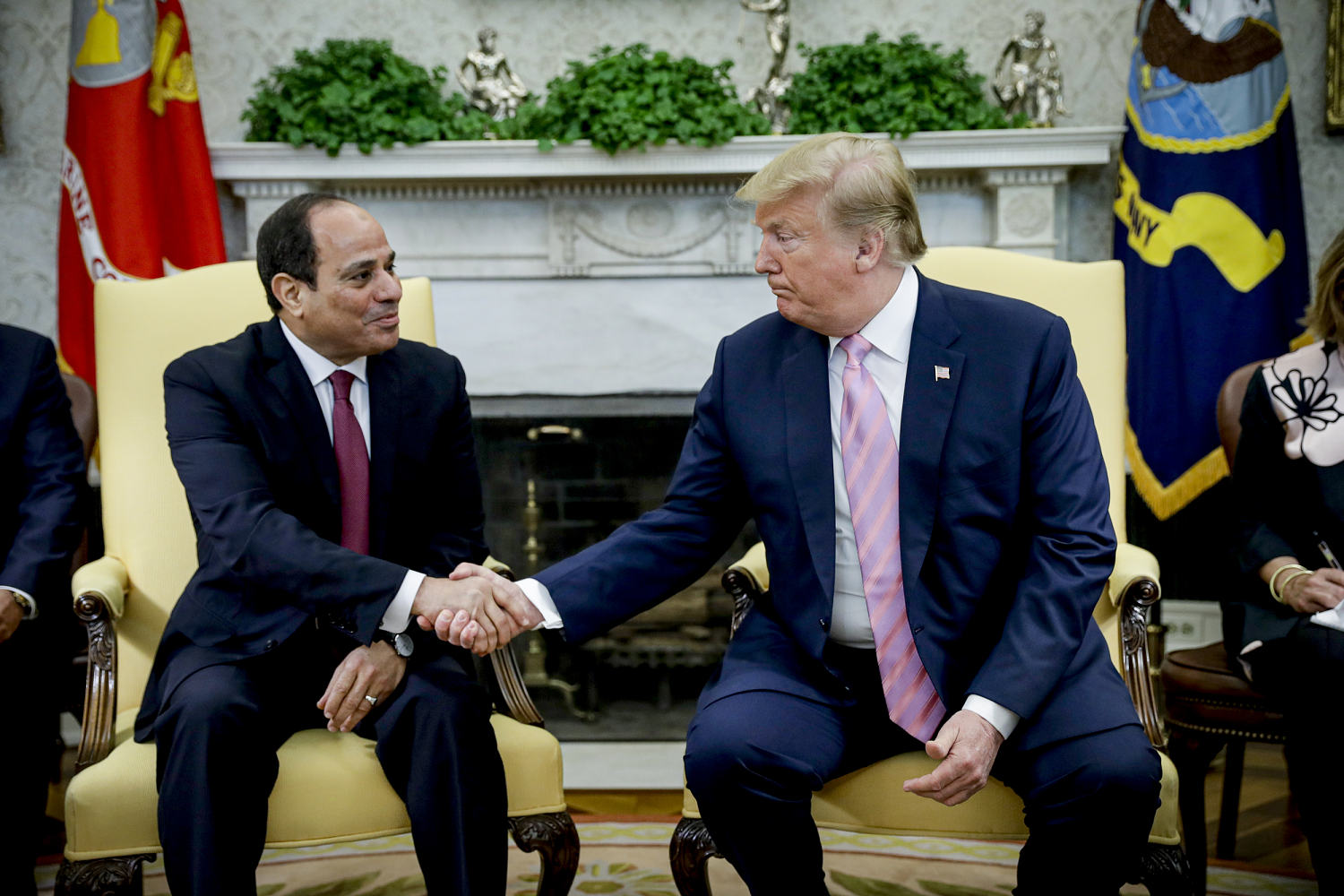
If I attended one of Donald Trump’s press conferences, the former president probably wouldn’t call on me. If, however, I got lucky and was able to ask the Republican a question, the challenge would be choosing among hundreds of potential lines of inquiry.
But all things considered, I’d be inclined to ask a question about a controversy that hasn’t generated nearly enough attention: “Did you accept $10 from Egypt in 2017?”
Evidently, some congressional Democrats are thinking along the same lines. The Washington Post reported:
Democratic leaders on the House Oversight Committee released a letter Tuesday asking former president Donald Trump if he ever illegally received money from the government of Egypt, and whether money from Cairo played a role in a $10 million infusion into his 2016 run for president.
According to the Post’s reporting, two leading House Democrats — Maryland’s Jamie Raskin, the ranking Democrat on the Oversight panel, and California’s Robert Garcia, the top Democrat on its subcommittee for national security, the border and foreign affairs — are now pressing the former president for answers.
“Surely you would agree that the American people deserve to know whether a former president — and a current candidate for president — took an illegal campaign contribution from a brutal foreign dictator,” the congressmen’s letter reads. “Accordingly, we request that you immediately provide the Committee with information and documents necessary to assure the Committee and the American public that you never, directly or indirectly, politically or personally, received any fund from the Egyptian president or government.”
As a practical matter, the use of the word “request” was highly relevant: Raskin and Garcia have no legal authority to compel the scandal-plagued former president to cooperate with their inquiry. In theory, their Republican counterparts could issue a subpoena and hold hearings, but in practice, GOP members have proven wholly indifferent to Trump-related controversies, regardless of merit.
All of which is to say, the former president and his team will almost certainly ignore the Democratic lawmakers’ questions.
That said, it’s tough to deny the fact the questions deserve answers.
Revisiting our earlier coverage, it was about a month ago when the Washington Post first reported that five days before Trump’s inauguration, “a manager at a bank branch in Cairo received an unusual letter from an organization linked to the Egyptian intelligence service. It asked the bank to ‘kindly withdraw’ nearly $10 million from the organization’s account — all in cash.”
The Post’s August report, which has not been independently verified by MSNBC or NBC News, went on to note that records indicate that four men ultimately arrived at the state-run National Bank of Egypt and carried away bags containing nearly $10 million in bundles of $100 bills. The money represented “what was then a sizable share of Egypt’s reserve of U.S. currency.”
A variety of questions obviously came to the fore. Where’d the money go? What did officials linked to the Egyptian intelligence service want with roughly 200 pounds of $100 bills?
According to the reporting, some FBI agents were concerned that the money was intended to go to Trump. In fact, those agents reportedly opened an investigation into whether Egypt illegally funneled $10 million in cash to the Republican for his 2016 campaign.
And while that sounded like the basis for an incredible story, there’s more.
U.S. investigators, relying on U.S. intelligence, reportedly came to believe that Egypt’s then-president wanted to give Trump $10 million to boost his 2016 candidacy. Around the same time, Trump met with Egypt’s then-president, praising him on Fox News soon after as a “fantastic guy.”
We don’t know whether Egypt gave Trump the money. We do know that a few weeks after Trump met with Egyptian President Abdel Fatah El-Sisi — the one who apparently wanted to give the Republican $10 million — Trump somehow produced $10 million of his own money for his campaign. It was, however, structured as a loan so Trump would get the money back.
The then-GOP candidate, of course, ultimately won the election. It was during that presidential transition period, shortly before Inauguration Day 2017, when an organization linked to the Egyptian intelligence service allegedly picked up 200 pounds of $100 bills from Egypt’s state-run national bank.
Soon after, Egypt’s president became one of Trump’s first foreign guests at the White House — a generous diplomatic gesture — and the then-American president ultimately released over $1 billion in military aid for Egypt.
U.S. investigators never proved that the cash from that Egyptian bank went to Trump. That would’ve required access to more of Trump’s financial records, which they didn’t get.
Why not? According to the Post, because then-Attorney General Bill Barr intervened to prevent FBI agents from subpoenaing Trump’s financial records. What’s more, Barr removed the relevant prosecutor — and her replacement — until the controversial A.G. finally arrived at a prosecutor who shut down the investigation altogether.
Trump has denied wrongdoing, though as Rachel Maddow Show viewers might recall, he has the wherewithal to simply shut down all questions by releasing relevant financial records — either to the public or to congressional investigators. To date, that hasn’t happened.
A few months ago, Trump falsely accused President Joe Biden of “receiving money, for no apparent reason, from foreign countries.” Given this, it would appear that the former president shouldn’t be too surprised to receive some related questions from his recent past.
This post updates our related earlier coverage.

Leave a Reply